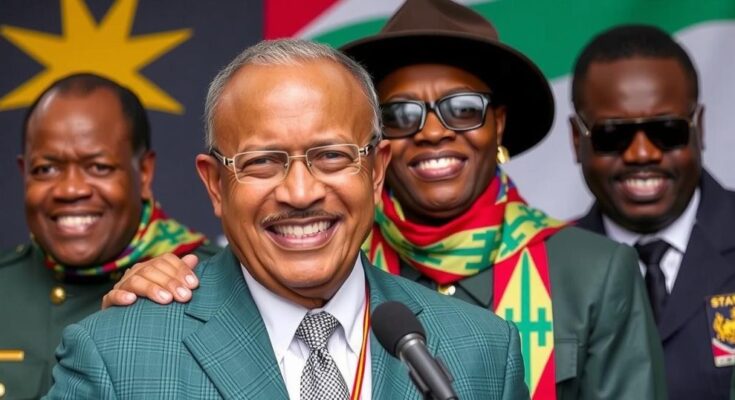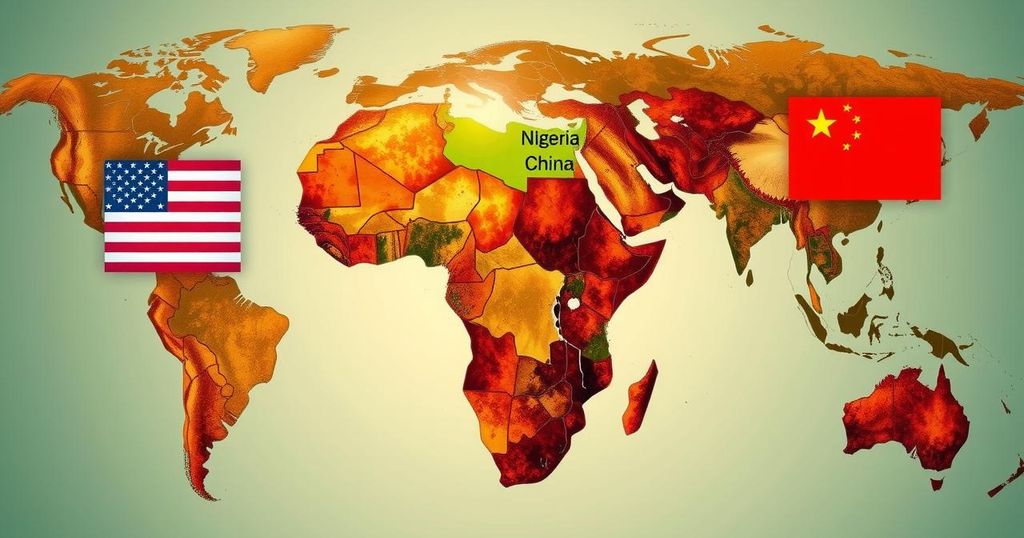Namibia’s ruling Swapo party has retained power but suffered losses in parliamentary elections. Electoral results reveal a complex political landscape, where growing public dissatisfaction with corruption and economic conditions is reshaping voter mobilization across sub-Saharan Africa. Governments are facing intensified opposition, culminating in significant electoral defeats, signaling a potential shift towards greater democratic participation in the region.
Namibia’s ruling party, Swapo, has maintained its position of power following over three decades in governance, but its authority has notably diminished. Official election results indicate that Swapo candidate Netumbo Nandi-Ndaitwah garnered 57% of the vote, marking her as the country’s first female president. However, opposition groups have contested these results due to numerous logistical issues and alleged irregularities during the elections. Despite losing 12 parliamentary seats and barely securing a majority, the Swapo party has paradoxically improved its presidential vote share.
This electoral situation reflects a broader trend observed across sub-Saharan Africa in 2024, where governing parties have generally faced substantial setbacks at the polls. Factors contributing to this phenomenon include economic decline, increasing public discontent regarding corruption, and the rise of assertive opposition coalitions. For instance, the long-standing Botswana Democratic Party experienced a severe defeat, diminishing from 38 seats to only four in parliament. Similarly, Mauritius witnessed a dramatic political shift with the governing coalition reduced to just two parliamentary seats after the opposition swept 60 of 66 seats.
Other regions have encountered similar political upheavals. In Senegal, although the government attempted to suppress opposition through the incarceration of key political figures, the main opposition leader, Bassirou Diomaye Faye, emerged victorious upon their release. What becomes apparent from these elections is that even in countries where governments maintain power, their political control and reputation can suffer significant damage. For example, the African National Congress of South Africa has faced a decline in voter support, leading to a coalition government, a first since the end of apartheid.
Public anger surrounding economic issues, particularly high living costs, has fueled electoral discontent. This sentiment has resonated not just within Africa but across the globe, as seen in other nations experiencing discontent over inflation, leading to political shifts. Opposition parties in Africa have been increasingly strategic, forming coalitions and ensuring rigorous electoral oversight to safeguard against malpractice, as demonstrated in recent elections.
The potential continued momentum for opposition victories raises several questions regarding the future political landscape in sub-Saharan Africa. As citizens rally for accountability and democratic practices, it suggests a potent resilience partly unnoticed amidst global authoritarian trends. The coming elections in Ghana and Malawi will serve as pivotal moments to assess if this trend becomes a more palpable regional phenomenon.
Ultimately, the current electoral landscape highlights the increasing relevance of civil society and opposition movements in South Africa and beyond, warranting attention from international democratic advocacy efforts.
This article analyzes the electoral outcomes in Namibia, particularly focusing on the ruling party, Swapo, and its recent difficulties in maintaining political dominance amidst changing voter sentiments across sub-Saharan Africa. It places Namibia’s elections in the context of broader regional trends, emphasizing factors such as economic challenges, public outrage over corruption, and the advent of organized political opposition. It highlights significant electoral shifts in various countries, along with the potential implications for future governance and democracy in the region.
In summary, Namibia’s recent elections reflect a worrying trend for ruling parties in sub-Saharan Africa, showcasing an electorate increasingly disillusioned with long-standing governance. As demonstrated by substantial losses for Swapo and other governing entities, voter sentiments are increasingly shaped by economic conditions and a demand for accountability. This trend points to an emerging resilience in the democratic processes of the region, suggesting the need for continued attention from international observers as upcoming elections unfold.
Original Source: www.bbc.com




